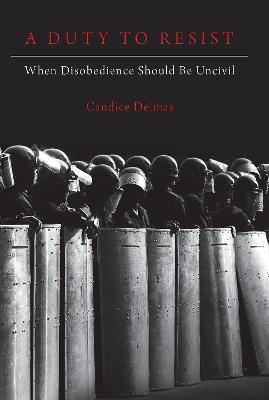What are our responsibilities in the face of injustice? How far should we go to fight it? Many would argue that as long as a state is nearly just, citizens have a moral duty to obey the law. Proponents of civil disobedience generally hold that, given this moral duty, a person needs a solid justification to break the law. But activists from Henry David Thoreau and Mohandas Gandhi to the Movement for Black Lives have long recognized that there are times when, rather than having a duty to obey the law, we have a duty to disobey it.
Taking seriously the history of this activism,
A Duty to Resist wrestles with the problem of political obligation in real world societies that harbor injustice. Candice Delmas argues that the duty of justice, the principle of fairness, the Samaritan duty, and political association impose responsibility to resist under conditions of injustice. We must expand political obligation to include a duty to resist unjust laws and social conditions even in legitimate states.
For Delmas, this duty to resist demands principled disobedience, and such disobedience need not always be civil. At times, covert, violent, evasive, or offensive acts of lawbreaking can be justified, even required. Delmas defends the viability and necessity of illegal assistance to undocumented migrants, leaks of classified information, distributed denial-of-service (DDoS) attacks, sabotage, armed self-defense, guerrilla art, and other modes of resistance. There are limits: principle alone does not justify law breaking. But uncivil disobedience can sometimes be not only permissible but required in the effort to resist injustice.




